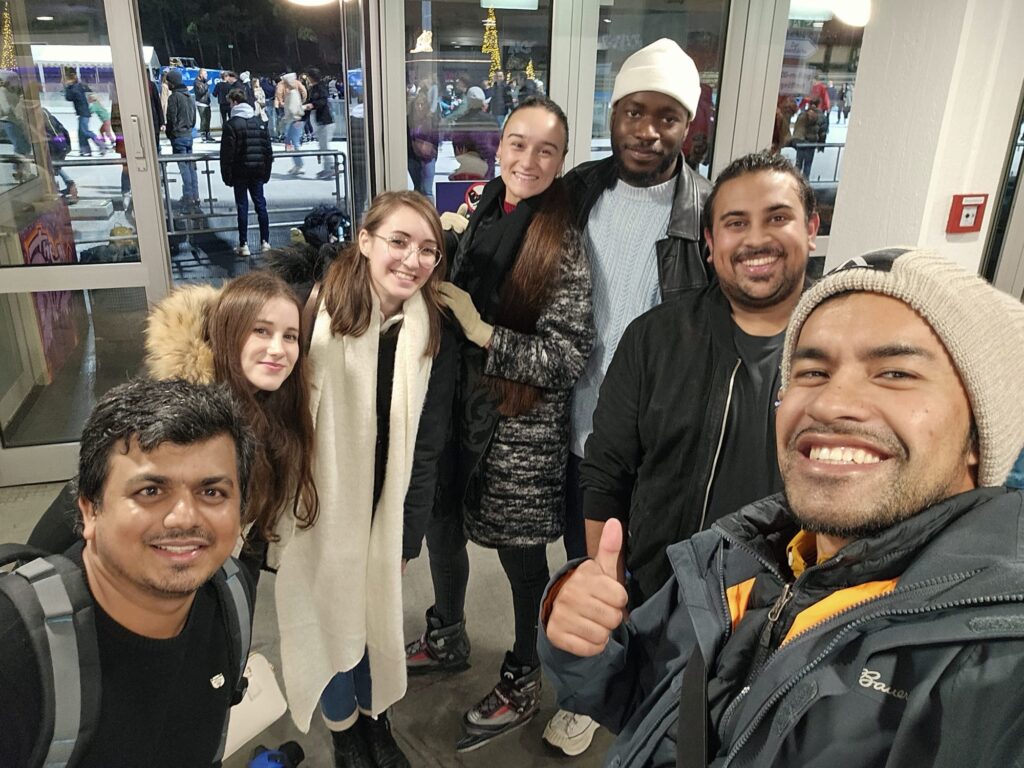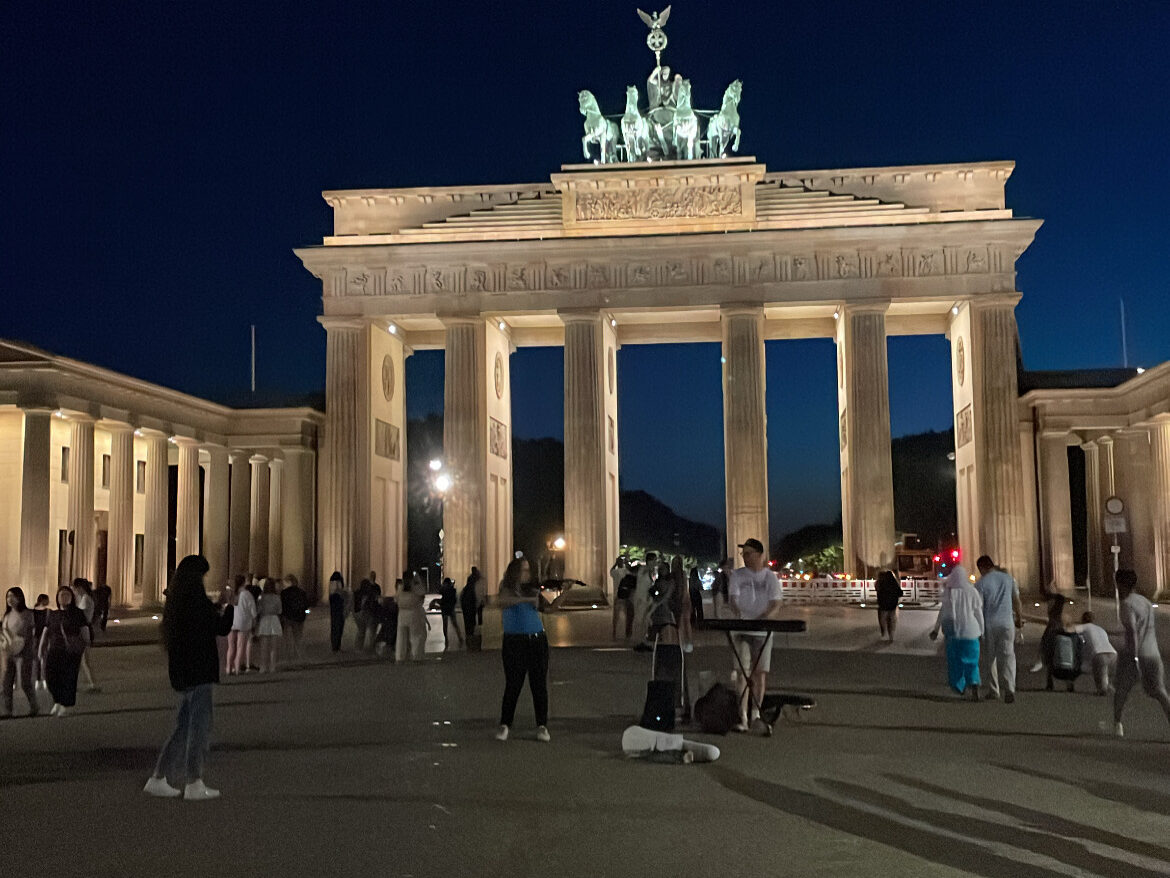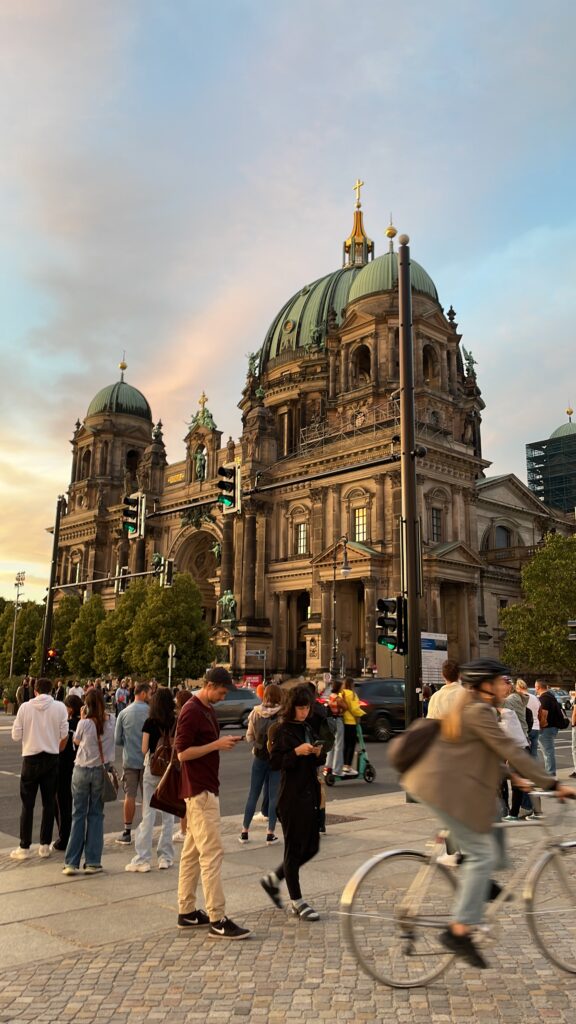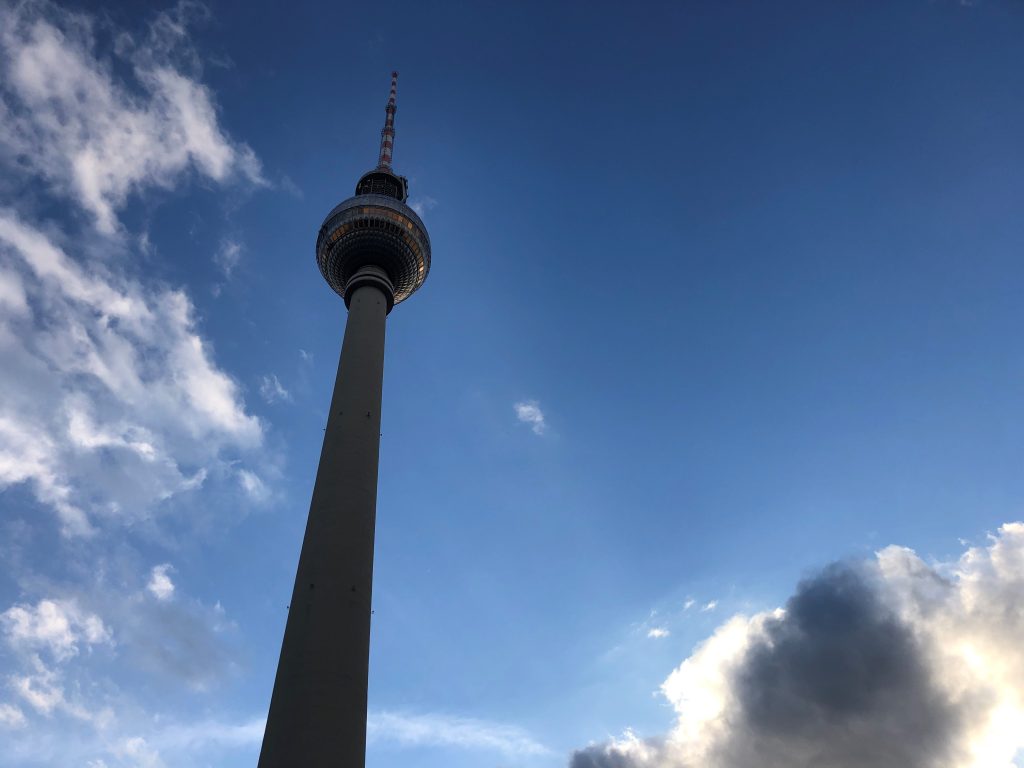On the blog this week, final year German and Portuguese student, Aaron, reflects on his time in Berlin and what he wishes he’d known in advance of his year abroad…
My name’s Aaron, I study German and Portuguese at Wadham, and as I’m writing this blog post, I’ve been back at Oxford for one term since my year abroad. I recently wrote another post about the more general, administrative stuff that’s associated with the year abroad, but this time I want to talk about my time in Berlin and write something that I, myself, would have found useful before going abroad.
When I landed in Berlin and got the keys to my apartment, to be honest, all the fear came to a head. How was I going to meet people? What if I ended up holed up in my flat every day? The great thing about the year abroad is that it’s tried and tested – especially in major European cities. There are countless blogs (including this one!) that document the experience, as well as travel sites, and as an Oxford student in particular, you will usually be able to reach out to your college parents (a set of students in the year above who do your subject) and get their guidance too. Alongside all of this, it’s good to try and get an idea of the social media landscape, since it can vary from one place to the next. Things like TikTok and Instagram are generally helpful for finding stuff like exhibitions that you might want to go to, but for more personal events, there are apps like Meetup and Flock.

Meetup is particularly good for finding groups with specific interests – it has everything from wellness events to Dungeons and Dragons groups, from sports clubs to foodie meetups. It was through Meetup that I made some of my closest friends, and the great thing about using apps or sites like these is that the other people you meet are usually as new to the city as you are. We also ended up finding a lovely weekly brunch group, where they’d go to a different restaurant every Sunday and spend a few hours with some yummy pastries and good company. The other really nice thing about the major cities is that they’re super international, so if you’re not feeling very confident in your second language, you can usually find people who speak your first, whether that’s English or not.

While I do enjoy spending time with other people, I also love a good bit of ‘me time’ – the year abroad is great for this in general, there’s always museums and beautiful scenery to take in. For me, I often found myself walking the length of Berlin’s Tiergarten park, losing myself in its beauty and wandering through the Brandenburg Gate before grabbing a coffee and just taking in the view. This is another reason why it’s important to love what you do; Berlin is now one of my absolute favourite places to be, but being there on your own schedule and with total freedom is such a special and freeing experience. Berlin, specifically, also has two great museum programs: the first is Museumssontag (Museum Sunday), where entry to around 80 museums is free on the first Sunday of every month. The second, and my personal favourite as a certified night owl is the lange Nacht der Museen (the long night of museums), where a number of Museums are open from 6pm until 2am!

Berlin’s also known for its Sunday flea markets or Flohmärkte, of which there are many. One of my absolute favourite things to do was go and wander the Flohmärkt am Mauerpark, one of the best-known markets, with hundreds of small businesses trading out of it, selling artisan jewellery, art prints, and (the best part) all manner of different foods. Berlin is split up into a number of different districts, each with its own distinct identity and character. From one market to the next, you can really see the character of a given area and the difference in the locals, even what they’re selling. There’s a flea market at Rathaus Schöneberg, the same place where John F. Kennedy once stood and proudly professed himself to be ein Berliner (understood outside of Berlin to actually refer to a jam-filled doughnut). Anyway, this market completely encompasses the historical nature of the area – there you’ll find vendors selling anything from old books to items from the GDR, or even antique jewellery.

So, there was plenty of stuff to do! The last thing I’ll mention is that, because you’re not the only person trying to experience as much as possible, you get to watch friends find all of these incredible things too. A friend of mine from Paris found a local dance group dedicated to waacking (a street dance style, originating in Los Angeles in the 70s), while another friend, a local, was part of a university handball team – going to their performances and matches was great, as it pushed me to get out of my comfort zone and gave me the chance to see if those things were for me too. Unfortunately, I found that my waacking ability was inversely proportional to my enthusiasm for it…
All of this made the year abroad a really great experience and probably the best part of my languages degree so far!










